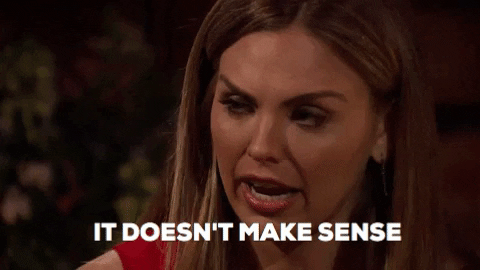Gaslighting: Know the Signs
By Rachel Zar, LMFT
I’m all for guilty pleasures as a form of self care. But, recently, one of my go to treats, The Bachelor/Bachelorette franchise, has become harder to watch. Why? Because of what appears to be an epidemic of gaslighting. For fellow members of Bachelor Nation, look no further than Luke P. for a demonstration of what this abusive tactic looks like. For those who have other things to do on Monday nights, read on to understand what the term “gaslighting” actually means, so you can be aware if it’s happening to you—or if you’re doing it to someone else.
What is gaslighting?
Gaslighting is a form of psychological abuse in which the abuser questions the victim’s judgments and reality to the point that the victim begins to doubt their own feelings or even their sanity. The term come from a 1940 play-turned-movie in which a husband continuously dimmed the lights and then denied any change in an attempt to drive his wife crazy.
What does gaslighting look like?
Gaslighting can show up in many ways—but it ultimately looks like the abuser continuously questioning or denying that what you are saying is real or valid. Those who gaslight generally stick to their story even when you point out evidence to the contrary. (“Your memory is bad,” or “That’s all in your head.”) Instead of addressing an issue that’s important to you, they’ll often deflect, brush your feelings aside, or change the topic. (“Not this again…”) They’ll very rarely validate your side of things. Instead they’ll minimize your thoughts and feelings (“Calm down.”) and shift the blame to you. (“You’re overreacting,” or “You’re too sensitive.”) They may also claim that they only behaved badly because of the way you treated them first, twisting the truth to favor their side. They may even discredit you to others, implying that you are unstable or roll their eyes when you speak. And they may let you know what others are really thinking of you. (“Your family thinks so, too…”)
Like other forms of emotional abuse, gaslighting is often done in a way that’s difficult to detect, and it is often coupled with charm and framed as compassion. (“I’m telling you this because I love you.”) When you believe that your partner would never hurt you intentionally, you may begin to doubt that your version of things is valid at all.
What does gaslighting feel like?
After communicating with someone who’s gaslighting you, you’ll probably feel confused and left wondering if something is really wrong with you. You may find yourself apologizing for your feelings or rewriting a story in your head that you were certain of just a few minutes ago. Over time, you’ll begin to second-guess yourself constantly, and you may have trouble trusting your own judgment or making even simple decisions. You’ll begin to feel that you can’t do anything right or that you’re not a good partner. And you may wonder why you’re not happier in a life that’s supposed to feel good.
If this describes you, please reach out to trusted family and friends or tell your therapist. The National Domestic Violence Hotline is also a great resource: https://www.thehotline.org/what-is-gaslighting/
While gaslighting might make for entertaining television (although, that’s debatable), it absolutely cannot be part of a healthy relationship.




